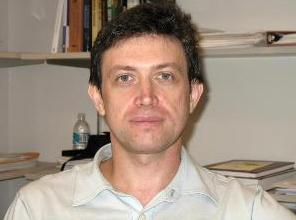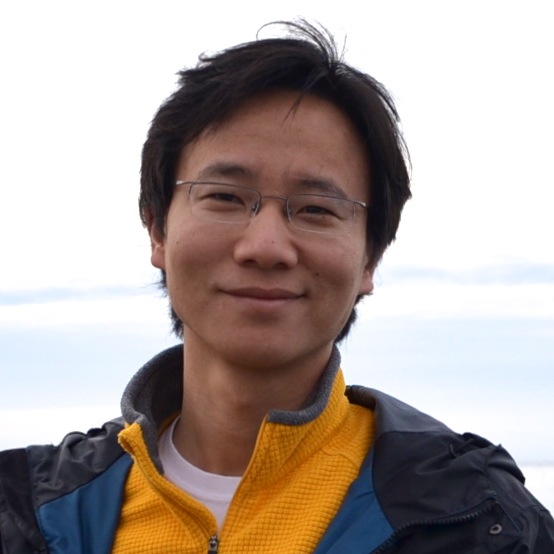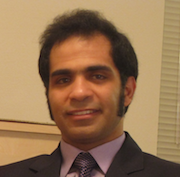|
|
|
Anne H.H. Ngu is currently a Full Professor with the Department of Computer Science at Texas State University. From 1992-2000, she worked as a Senior Lecturer in the School of Computer Science and Engineering, University of New South Wales, Australia. She had held research scientist positions with Telcordia Technologies; Microelectonics and Computer Technology (MCC); University of California, Berkeley; Commonwealth Scientific and Industrial Research Organization (CSIRO), Australia and the Tilburg University, The Netherlands. She was a summer faculty scholar at Lawrence Livermore National Laboratory from 2003-2006. Dr Ngu has published over 100 technical papers in journals and refereed conferences in computer science. Her main research interests are in large-scale service and information discovery and integration, service platforms for Internet of Things, business and scientific workflows, databases and Software Engineering. Her professional service features key leadership roles in three international conferences. She was bestowed with a special Outstanding Contribution Award for one of them. She was a winner of the 2013 NCWIT Undergraduate Research Mentoring Award. |
|
|
|
Rodion Podorozhny received his Ph.D. in Software Engineering from the University of Texas, Austin in 2004 and M.Sc. in Computer Science from the University of Massachusetts, Amherst in 1997. He joined Texas State University - San Marcos in 2004. Rodion Podorozhny's research interests are in the area of software engineering, in particular in software process and formal methods. In addition, he has done some work in analysis of multi-agent systems and application of the multi-agent technology to software process enactment. |
|
|
|
Apan Qasem is an Associate Professor in the Computer Science Department at Texas State University. He received his PhD in 2008 from Rice University. Qasem directs the Compilers Research Group at Texas State where he and his students are working on a number of projects in the area of high-performance computing including developing intelligent software for improving programmer productivity and using GPUs for general-purpose computation. Qasem's research has received funding from the National Science Foundation, Department of Energy, Semiconductor Research Consortium (SRC), IBM, Nvidia and the Research Enhancement Program at Texas State. In 2012, he received an NSF CAREER award for his foundational work on autotuning of exascale systems. Qasem has co-authored over 50 peer-reviewed publications including one that won a best paper award. He regularly teaches the undergraduate and graduate Compilers and Computer Architecture courses. |
|
|
|
I am an Assistant Professor at the Department of Computer Science at Texas State Univeristy. I joined the deparment in August 2014. My research interests span the areas of Machine Learning, Data Mining and Computer Vision with focus in applications of Smart Health and Wellbeing, Assisted Living and Bioinformatics. I earned my B.S. degree in 2005 from the Department of Informatics of the University of Economics and Business of Athens in Greece, and my Ph.D. in 2011 from the Department of Computer Science and Engineering of the Univeristy of Texas at Arlington (UTA), under the supervision of professors Fillia Makedon and Heng Huang. After receiving my Ph.D. dimploma, and until joining TxState, I was employed, as a Research Assistant Professor by UTA, and I continued to be affiliated with Heracleia Human-Centered Computing Lab, where I was involved with several federally-funded research projects, as a Co-PI or Senior Researcher. I also taught a number of graduate and undergraduate classes at the CSE department. During the years 2006-2007, I worked as a Research Associate for the E.C. funded project MedIEQ at the Department of Informatics and Telecommunications of the National Center for Scientific Research (NCSR) "Demokritos", Greece. |
|
|
|
I am an Assistant Professor in the Department of Computer Science at Texas State University. My research addresses various elements of how to enhance software reliability and dependability, including software verification and testing, software maintenance and evolution, program analysis, and formal methods. Previously, I received my Ph.D. from The University of Texas at Austin in 2013, advised by Sarfraz Khurshid. I received my M.S. in Computer Science from University of Nebraska-Lincoln, co-advised by Matthew B. Dwyer and Gregg Rothermel. Before coming to the U.S., I received my M.E. in Computer Software and Theory from Institute of Software Chinese Academy of Sciences, and my B.E. in Software Engineering from Harbin Institute of Technology. |
|
|
|
I am an assistant professor in the Department of Computer Science at Texas State University, and an adjunct assistant professor in the Department of Cellular and Structural Biology at the University of Texas Health Science Center - San Antonio. I am the Principal Investigator of Oncinfo Lab. I received my Ph.D. from the University of British Columbia (UBC) in 2011. Prior to my current position, I was a researcher at British Columbia Cancer Agency in Canada, and also in the Department of Genome Sciences at the University of Washington. I am a bioinformatician and computational biologist, and my primary interest is focused on developing new machine learning algorithms for analyzing complicated, large size, and rich biological data. |






